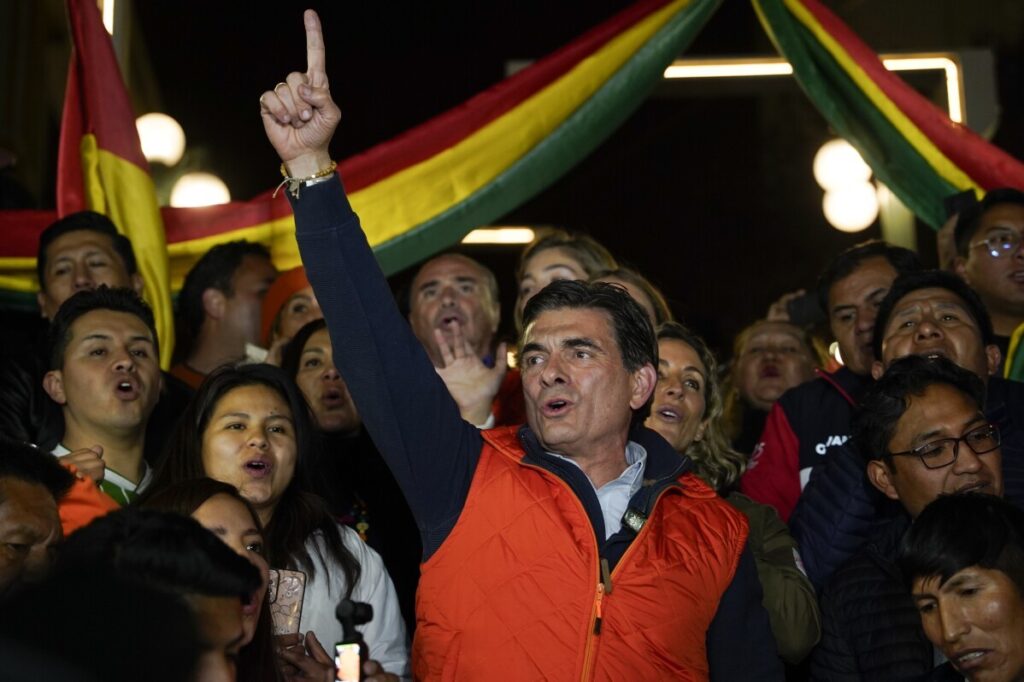Bolivia’s Election Shakes Two Decades of Leftist Rule—But What Lies Ahead for American Interests?
After twenty years under the socialist Movement Toward Socialism (MAS) party, Bolivia’s election ushers in a runoff between opposition figures, signaling a dramatic shift—but economic turmoil and political infighting raise hard questions about the nation’s future and its impact on U.S. interests.

Bolivia’s recent presidential election marks an unprecedented moment in the Andean nation’s modern history—a clear sign that voters are finally rejecting two decades of socialist dominance under the Movement Toward Socialism (MAS) party. But as the nation heads into its first-ever democratic runoff since 1982, Americans must ask: how will this political upheaval affect regional stability and by extension, our own national security and economic interests?
Is Bolivia Turning the Page or Repeating Old Mistakes?
The centrist Senator Rodrigo Paz, unexpectedly leading with 32.8% of the vote, stands poised against former President Jorge “Tuto” Quiroga in an October runoff. Both candidates claim reform but face skeptical electorates fatigued by hyperinflation soaring above 25%, fuel shortages paralyzing communities, and a crippling scarcity of U.S. dollars vital for imports like wheat.
While Paz’s call for “Renewal!” resonates with voters eager for change, his deep ties to Bolivia’s traditional political elite suggest that old power dynamics may persist under new banners. His attempts to distance himself from plans to monetize lithium reserves or seek International Monetary Fund loans reflect a cautious approach—but can this balance revive an economy on the brink?
Meanwhile, MAS—the once dominant force championing indigenous rights and social programs—has fractured spectacularly amid internal strife between founder Evo Morales and current President Luis Arce. Morales’ failure to respect democratic term limits coupled with scandal allegations has eroded public trust, culminating in an unusual 19% invalid ballot rate as supporters express their frustration.
Why Should American Patriots Watch Bolivia Closely?
This turbulence is no isolated event far from U.S. shores. Political instability in Bolivia threatens to ripple through Latin America’s supply chains—especially concerning critical minerals like lithium that fuel America’s growing tech and energy sectors. An unstable Bolivia risks greater Chinese and Russian influence in its resource markets and political corridors, undermining America First efforts to secure sovereign supply lines.
The disarray also presents opportunities: a Bolivian leadership committed to fiscal responsibility and openness could realign with the United States after years of drifting toward China and Russia. However, past flirtations with neoliberal policies left many Bolivians wary; success demands that new leaders actually deliver prosperity without surrendering sovereignty.
How long will Washington remain vigilant to these developments? The lesson is clear—supporting freedom-loving governments that uphold democracy and economic liberty abroad strengthens America at home. Conversely, ignoring these shifts risks further erosion of our hemispheric security environment.
As Bolivia faces a choice reminiscent of its turbulent past yet hopeful for renewal, American patriots should follow closely—not merely as spectators but as advocates for national sovereignty globally and resilience domestically.
